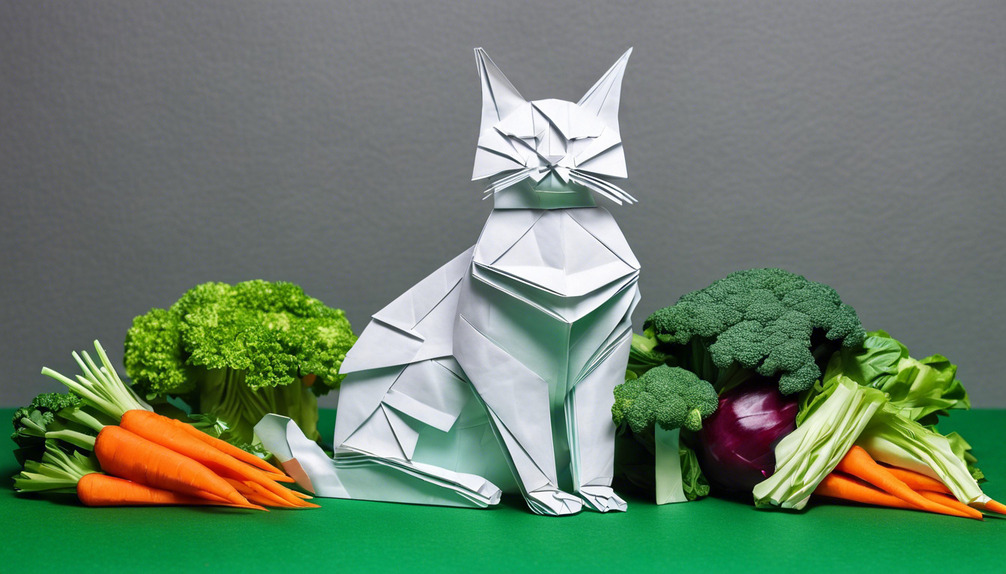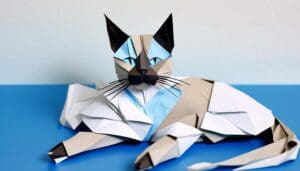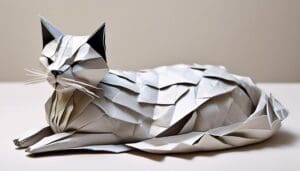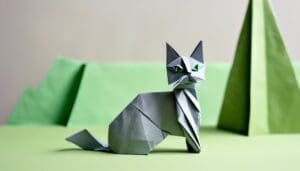As your senior cat gracefully ages, their dietary needs undergo a significant transformation, much like a caterpillar entering its chrysalis before emerging as a butterfly.
Choosing the right diet plays a pivotal role in ensuring your cat enjoys a fulfilling and vibrant life.
The world of senior cat diets is rich and varied, with a multitude of options to cater to your cat’s specific health requirements.
From wet cat foods brimming with added nutrients to dry cat foods designed to support dental health, the choices can be overwhelming.
However, fear not, for navigating this labyrinth of options can be made simpler with a little guidance.
So, let’s embark on this journey together and uncover the top diets that can enhance your senior cat’s health and vitality.
Key Takeaways
- Senior cat diets address specific health concerns that arise with age, such as chronic kidney disease and lower urinary tract disease.
- Weight management is important for senior cats as their energy requirements decrease.
- Adequate hydration is crucial for senior cats, and wet food can be beneficial.
- Choosing a high-quality senior cat food that meets nutritional standards is important for supporting joint health, cognitive function, and the immune system.
Nutritional Needs of Senior Cats
As your senior cat ages, their nutritional needs change, requiring a diet tailored to support their health and vitality. Senior cat foods play a crucial role in addressing specific health concerns that arise with age. Weight management becomes essential as energy requirements decrease. It’s important to feed your senior cat a diet that isn’t only lower in calories but also rich in high-quality protein to maintain muscle mass.
Senior cat diets need to consider the increased risk of chronic kidney disease and lower urinary tract disease. Consulting with a veterinarian to determine the appropriate senior cat food formula for your cat’s specific health needs is paramount.
Hydration is crucial for senior cats, and incorporating wet food or multiple water bowls can promote drinking. When selecting senior cat food, focus on ingredients that support dental health, include adequate taurine content, and are tailored to the specific needs of aging cats.
Ensuring these considerations are met will help support your senior cat’s overall health and vitality.
Weight Management for Elderly Felines
Considering the dietary needs of your elderly cat, a tailored weight management plan is crucial for maintaining their health and vitality. As your cat ages, their metabolism may slow down, making it easier for them to gain weight.
Here are some tips to help manage your senior cat’s weight:
- Choose the Right Food: Opt for senior cat food that’s specifically formulated for weight management. Look for options labeled as ‘light’ or ‘healthy weight’ to ensure that your cat’s nutritional needs are met while supporting weight loss.
- Control Portion Sizes: Monitor the portion sizes of your cat’s meals. Smaller, more frequent meals can aid in digestion and prevent overeating. This approach also helps in maintaining energy levels throughout the day.
- Regular Exercise: Encourage your senior cat to stay active. While they may not be as playful as they once were, engaging in low-impact activities like interactive play sessions or short walks can help them stay fit and maintain a healthy weight.
Dietary Considerations for Aging Cats
When addressing the dietary needs of aging cats, it’s essential to consider their evolving nutritional requirements to ensure their continued health and vitality.
As senior cats are more susceptible to medical issues like cancer, kidney disease, and heart disease, it’s crucial to tailor their diets to support their health.
Senior cats, typically aged 11-14, or geriatric cats, aged 15 and older, require special attention to their nutrient requirements. Energy needs decrease with age, making calorie control vital for weight management.
Portion control becomes essential to meet their dietary needs without overfeeding. Adequate hydration is also crucial, and feeding wet food can help increase water intake, preventing dehydration.
Portion control becomes essential to meet their dietary needs without overfeeding. Adequate hydration is also crucial, and feeding wet food can help increase water intake, preventing dehydration.
Consulting a veterinary nutritionist can aid in selecting the best diet for aging cats if they’ve specific health conditions. Specialized diets with reduced phosphorus, sodium, and protein levels may be necessary for cats with chronic kidney disease.
Choosing the Right Senior Cat Food
To ensure your senior cat’s continued health and vitality, it’s crucial to select the right senior cat food that meets their specific nutritional needs and supports their overall well-being.
When choosing the right senior cat food, consider the following:
- Consult with a veterinarian: Before switching to a senior cat food formula, consult with a veterinary professional to address any specific medical concerns your senior cat may have. This will ensure that the chosen diet is appropriate for your cat’s individual health needs.
- Look for AAFCO and WSAVA guidelines: Choose senior cat food that meets the nutritional standards set by organizations like AAFCO and WSAVA. Consulting with a veterinarian can help you determine the best diet based on your senior cat’s specific health requirements.
- Consider quality and specific health benefits: Opt for senior cat food that contains high-quality ingredients, supports joint health, and is easily digestible for older cats. These features can contribute to maintaining your cat’s overall health and well-being as they age.
Health Benefits of Senior Cat Diets
As you seek to ensure your senior cat’s health and vitality through choosing the right senior cat food, it’s important to understand the various health benefits that come with these specialized diets. Senior cat diets are specifically designed to meet the nutritional requirements of older cats, supporting their overall health and well-being.
The table below outlines the key health benefits of senior cat food:
| Health Benefits | Description |
|---|---|
| Proper Nutrition | Tailored to meet the unique needs of senior cats, providing the right balance of nutrients. |
| Muscle Mass | Supports the maintenance of lean muscle mass, promoting strength and agility in older cats. |
| Body Condition | Helps to manage weight and body condition, preventing obesity and related health issues. |
| Nutrient Profile | Contains essential nutrients that support cognitive function, joint health, and mobility. |
| Immune System Support | Formulated to strengthen the immune system, aiding in the prevention of age-related illnesses. |
Understanding the health benefits of senior cat diets is crucial in ensuring that your beloved cat receives the proper care and nutrition in their senior years. These diets, recommended by the American Association of feline Practitioners, play a vital role in promoting longevity and vitality in senior cats.
Frequently Asked Questions
What Is the Best Food to Feed an Elderly Cat?
When choosing the best food for your elderly cat, consult a vet for a formula that suits their age, health, and nutrition needs. Look for options that support energy, portion control, hydration, dental health, joint mobility, and cognitive function.
What Should a 15 Year Old Cat Eat?
A 15-year-old cat should eat a diet formulated for geriatric cats. Look for higher protein content, easily digestible ingredients, and support for joint health, cognitive function, and weight management. Consult a vet for personalized recommendations.
What Is the Suggested Feeding Guideline for a Senior Cat?
Feed your senior cat based on individual needs and activity levels, getting personalized recommendations from a vet. Consistency in meal times and portion control is crucial for monitoring and adjusting based on weight changes.
Is Wet or Dry Food Better for Senior Cats?
For your senior cat, wet food is better. It keeps them hydrated and aids in health conditions like kidney disease and diabetes. Wet food with added nutrients supports joint health and reduces the risk of urinary tract disease.




